Can I Dye My Hair While Pregnant? How To Do It With Caution
All you need to know about the safety of your baby before coloring your locks.
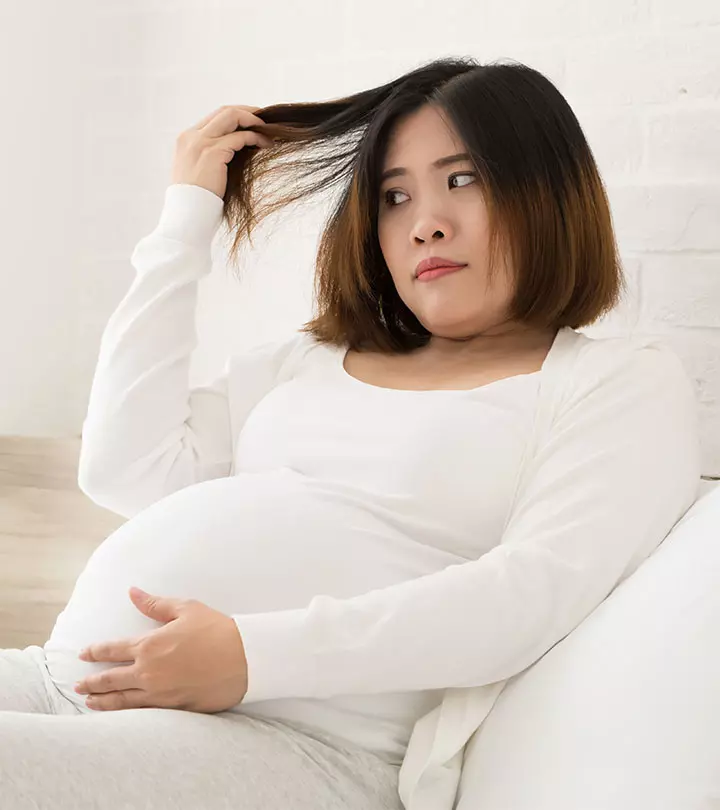
Image: Shutterstock
If the question, ‘Can I dye my hair while pregnant?’ bothers you, you are not alone. Queries like these often trouble pregnant ladies. However, you don’t have to worry anymore. We got your back. In this article, we answer all queries regarding coloring your hair while pregnant and related issues.
Coloring your hair is fun, and it boosts confidence in many. But, commercial colors often contain harmful chemicals that may affect maternal health. Instead, you can visit a hair salon that uses organic products or try DIY natural colors as they are safe for your hair and do not cause any harm to your baby. If a new style is what you are looking for, some highlights or other non-invasive coloring treatments can help you get a fresh look. Continue reading to know more.
In This Article
Can You Dye Your Hair While Pregnant?
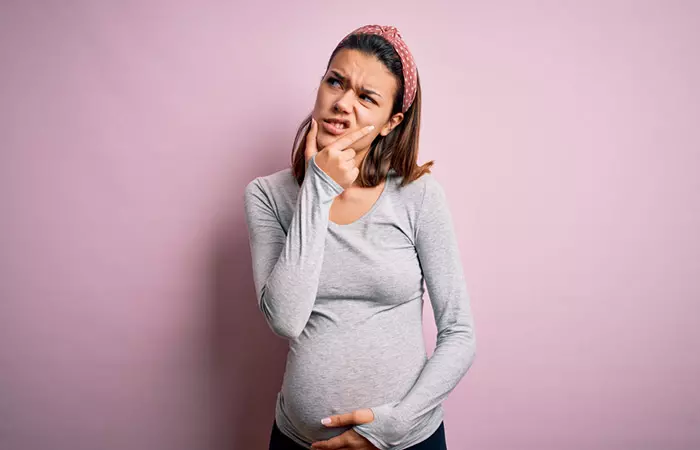
The Organization of Teratology Information Services (OTIS) is the most trusted source of information about the risks of exposure to any substances during pregnancy.
According to OTIS, it is safe to color your hair during pregnancy because of two reasons (1):
- Little or no hair dye is absorbed by the scalp and enters the bloodstream, much less enough to reach the fetus.
- Pregnant animals that were exposed to types of hair dye showed no signs of reproductive damage.
However, a study conducted at the University of North Carolina
found that maternal use of hair dyes may moderately increase the risk of neuroblastomai A type of cancer commonly found in and around the adrenal glands due to immature nerve cells in children. in the offspring (2). It was also surprising that temporary hair colors increased the risk of cancer development, and not permanent hair dyes (3).
Another study found that maternal exposure to hair dyes during breastfeeding increased the risk of childhood germ-cell tumors, especially in girls (3). However, a contradictory study showed no association between maternal use of hair colors during pregnancy and the development of childhood tumors (3).
However, Gallina Vertigo, a blogger and hairstylist shared her experience of coloring her hair during pregnancy. She said, “This is my second pregnancy and I colored my hair both times. My logic was simple. If any harm was ever caused by coloring chemicals – they would put a giant tag on each box “Do not use during pregnancy”. C’mon this is America and they even put “Caution might contain hot beverages” on the coffee cup. If there were even a slight chance or possibility of a lawsuit, this would be on the box (i).”
Nonetheless, more research with a larger sample size and greater categorization of different conditions of the mother during pregnancy is required.
It is best to consult your gynecologist before coloring your hair. Also, consider these points before you color your hair during pregnancy.
- Consult a dermatologist to know if there are any pregnancy-safe hair colors.
- Talk to your gynecologist to know if you should wait for a few weeks before dying your hair.
- Check if highlights, lowlights, ombre, and streaks will be safer than global hair color.
- Check the label to see what chemicals the hair color contains. If you are not sure which ones to avoid and which are safe, read the next section.
- Knowing the general side effects of hair dyeing and learning how to minimize risks with safe practices is also good.
Here is a list of toxic chemicals in hair dyes that you must avoid.
Key Takeaways
- Hair colors contain many toxic chemicals that may have negative effects on pregnancy.
- So, you should choose natural hair colors like beetroot juice, henna, and tea instead of chemical-laden hair colors.
- Follow safety precautions like checking all the ingredients, wearing gloves, and rinsing hair with cleansing shampoo after dyeing.
What Are The Chemicals In Hair Dyes?

Hair dyes are made of various chemicals and potentially harmful pigments. Therefore, knowing the ingredients and understanding the associated risks is crucial for making an informed choice when buying. Always check labels carefully and research about the ingredients and their harmful effects. Some common chemicals found in dyes are listed below. Have a look.
- Ammonia – It is a respiratory irritant and may cause hormonal imbalances.
- P-phenylenediamine – It causes liver toxicity, birth defects, and irritate the skin.
- Coal Tar – It is carcinogenic (cancer-causing) and may cause eye injury.
- Toluene – This neurotoxin may terminate the pregnancy and cause birth defects or allergic reactions.
- Resorcinol – It is a neurotoxin and causes hormonal imbalances.
- Other Chemicals – Peroxide, methylisothiazolinone, DMDM hydantoin, and fragrance.
Avoid hair dyes that contain these toxic chemical ingredients. Instead, use hair colors that are made with natural ingredients and tested for heavy metals. Moreover, you can also understand hair dye allergies and how to prevent them when considering coloring your hair while pregnant.
There are a few natural hair coloring options you can try at home without fretting! You will find these natural hair colors for pregnancy in your kitchen or at a grocery store. Also, their color payoff is stunning. Let’s take a look at them in the following section.
How To Color Your Hair Naturally During Pregnancy
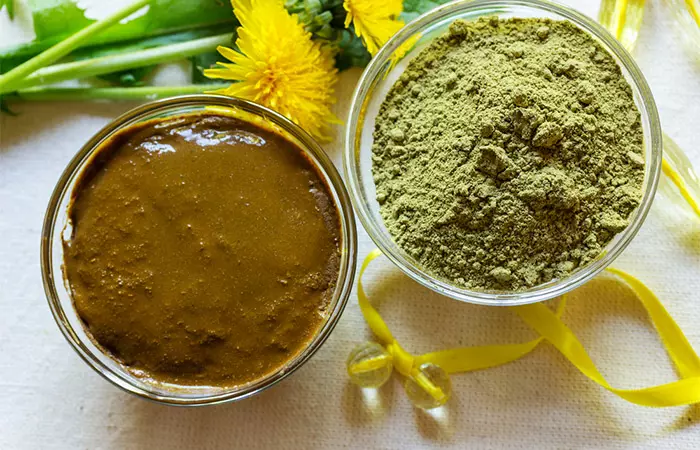
- Henna: This natural dye is prepared by crushing the leaves of the henna plant. Henna powder is easily available at any Indian or Middle Eastern store. Mix the henna powder with tea decoction and lemon juice (add a little coconut oil if you have dry hair). Apply it to your hair and rinse after 60 minutes. This ingredient imparts a gorgeous red-orange or auburn shade to your hair.
Note: If you have blonde hair, henna might turn it bright orange. - Beet Juice: Beet juice gives a subtle red tint to your hair that comes to life when you step out into the sun. Beetroot has antioxidant properties, which help prevent premature graying of the hair. If you want a more orange hue, try carrot juice. You can also customize your hair dye by mixing both juices. Apply this pure vegetable dye to your hair and wash off with a pregnancy-safe shampoo after 60 minutes.
- Tea: Concentrated tea decoction can help darken your hair and cover grays. Black tea is shown to have almost the same compounds as henna (4). On the other hand, chamomile tea has a bleaching effect and might lighten your hair if you sit under the sun after applying it.
- Coffee: If you want to darken your mane or add some depth and dimension to it, coffee is the way to go (5). A mixture of a strong cup of espresso coffee, leave-in conditioner, and coffee grounds works wonders in adding a dark shade to your hair. Wash off after 60 minutes.
- Lemon Juice: A few highlights throughout your tresses can go a long way in transforming your hair. The easiest way to go about it naturally is with lemon juice. Lemon juice is used as a lightener, especially to achieve blonde tones (6). Apply freshly squeezed lemon juice on thin sections of the hair and leave it on for several hours to lighten your hair and create highlights.
 Quick Tip
Quick TipTake the following precautions before using natural hair color or coloring at home using natural ingredients.
Precautions For Coloring Your Hair During Pregnancy
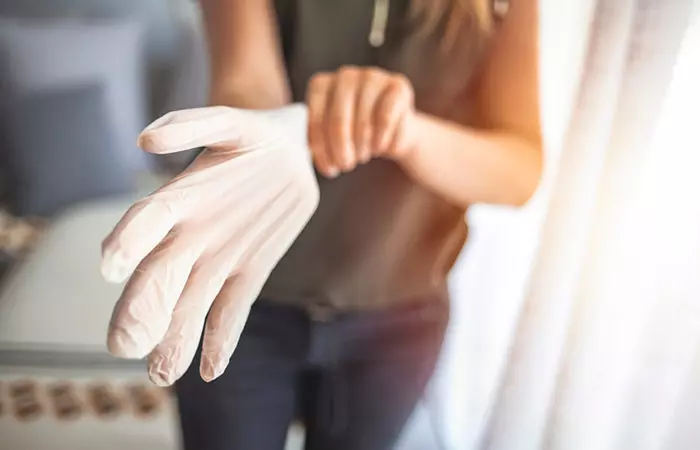
- Check the label of the hair dye to see if it contains any harmful chemicals. Opt for only ammonia-free dyes to reduce the risk of irritation.
- Conduct a patch test before proceeding with the coloring procedure.
- Wear gloves before dying your hair.
- Apply Vaseline or olive oil on your hands, neck, and forehead to prevent hair dye stains on your skin.
- Apply the hair color in an open space.
- Rinse your hair thoroughly with a color-safe shampoo and follow with a conditioner.
- Consider using pregnancy-safe hair colors from Radico’s and Hairprint as they are made of organic ingredients.
 Quick Tip
Quick TipInfographic: Hair Dyeing Tips For Pregnant Women
Being pregnant does not rule out the possibility of having gorgeous hair. However, it would be best to simply use more caution while dyeing or coloring your hair while pregnant. Here are 5 tips for getting the hair color you want without harming your unborn child. Illustration: StyleCraze Design Team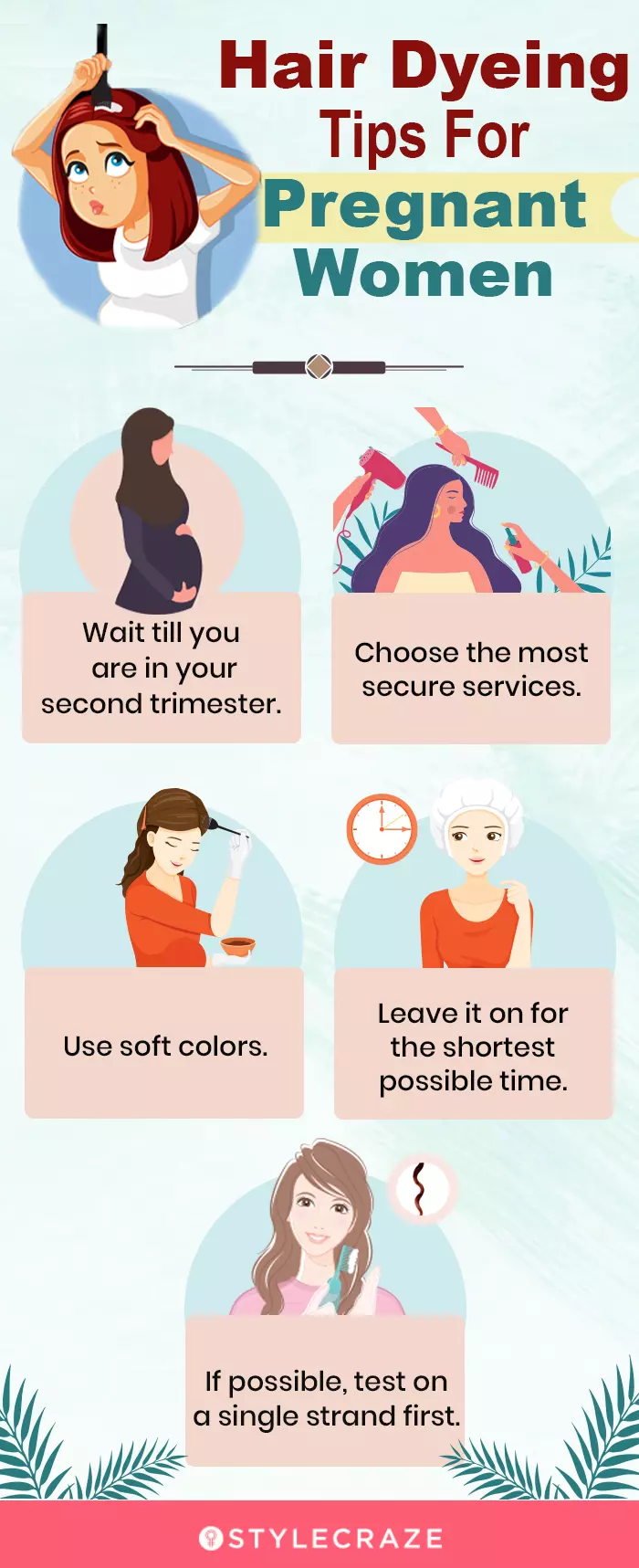
Studies have come up with contrasting results on the effect of both temporary and permanent dyes during pregnancy. Therefore, it is always better to consult a gynecologist if you are wondering whether you can use beauty products or dye your hair while pregnant. Always use dyes and hair products free from toxic chemicals like resorcinol, toluene, and ammonia. Consult a hair stylist if you are unsure about the hair product ingredients. These chemicals not only cause hair damage but may also impact your pregnancy and lead to birth defects. Instead, use natural ingredients like henna, tea, beet juice, or lemon juice to support natural hair growth, hair maintenance, and prenatal care. You can also discuss with your gynecologist and find out the best pregnancy-safe hair colors you can use.
Frequently Asked Questions
Is it safe to dye hair during the first trimester of pregnancy?
No. It is recommended to avoid dyeing your hair in the first trimester as you are more sensitive to the chemicals during this time. Besides, the baby’s organs usually develop during the first trimester, and chemicals in the dye can disrupt the growth. Wait until the second trimester to dye your hair.
Can I balayage my hair while pregnant?
Balayage hair treatment is an alternate dyeing method that produces a long-lasting ombre look. It limits exposure by not requiring any chemicals to come into contact with the scalp. So, yes, you may balayage your hair while pregnant. You can also consult your gynecologist to determine the best pregnancy-safe hair colors.
Can hair dye lead to a miscarriage?
No links have been found between using hair dyes and miscarriages. However, hair dyes are highly toxic and can lead to irritation and other health complications, which may affect your pregnancy.
When is it safe to dye my hair after giving birth?
Very little chemicals enter your bloodstream when using chemical hair dyes, and it is mostly harmless for the infant. Nevertheless, note that these conclusions are based on limited research.
Can you dye your hair in the first trimester?
Yes, you can. However, if you are using too many chemicals for your hair treatment, it is better to wait until 12 weeks of pregnancy, when the risk is much lower.
Is ammonia-free hair dye safe during pregnancy?
There is a general belief that ammonia-free products are gentler on the hair, irritation-free, and hence, safer. However,.it is important to scrutinize the entire ingredient list as individual responses to specific ingredients may vary. Remember, your body absorbs substances through the skin, so making informed choices is paramount. Consult with your healthcare provider to ensure the chosen dye aligns with your pregnancy and always conduct a patch test to rule out any unexpected reactions.
Illustration: Can I Dye My Hair While Pregnant? How To Do It With Caution
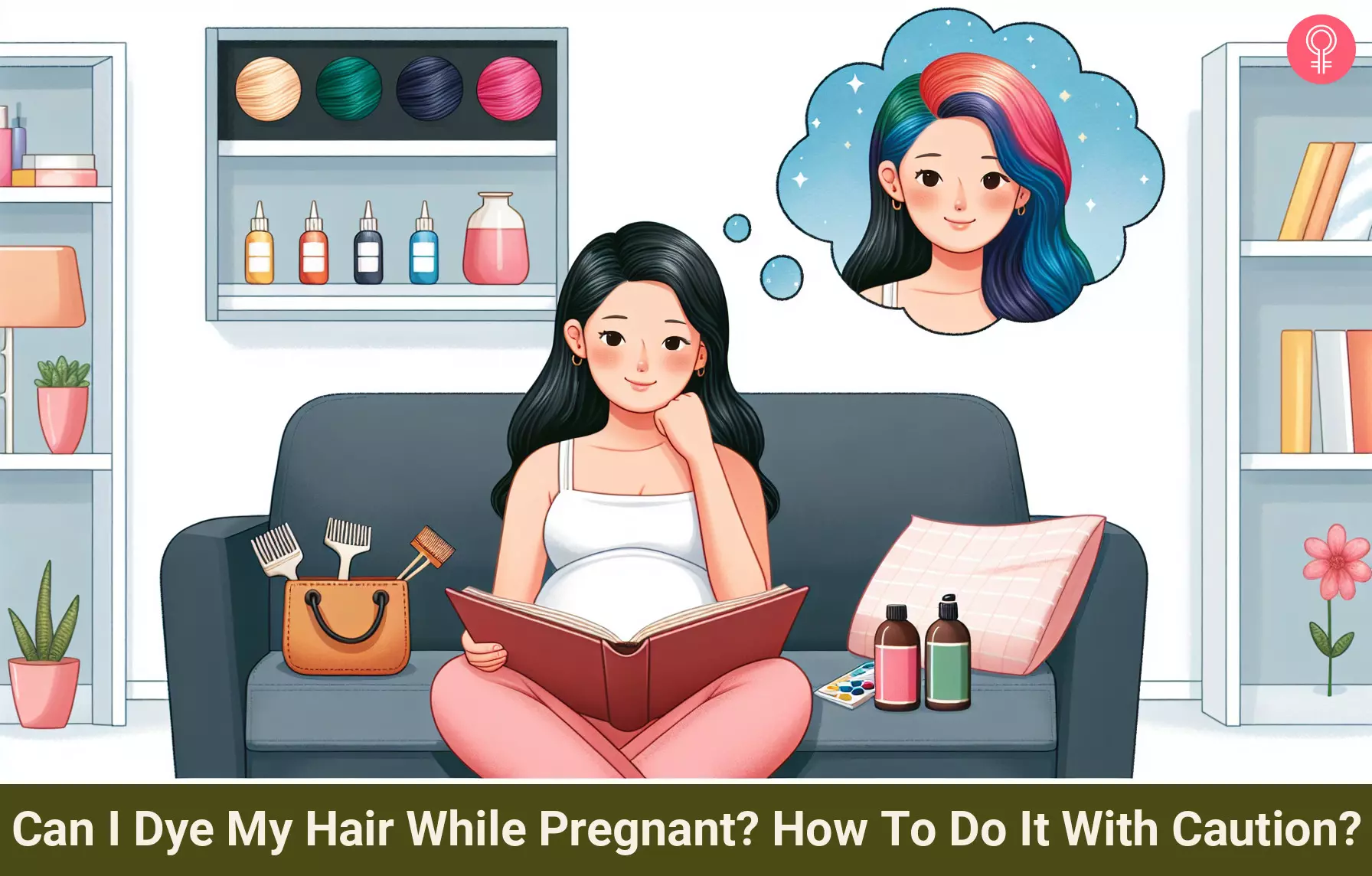
Image: Dall·E/StyleCraze Design Team
Pregnant and considering dyeing your hair? Then find out if it’s safe to dye your hair during this phase in the following video.
Personal Experience: Source
StyleCraze's articles are interwoven with authentic personal narratives that provide depth and resonance to our content. Below are the sources of the personal accounts referenced in this article.
i. Is it safe to color my hair during pregnancy?https://vertigo28.wordpress.com/2013/07/17/is-it-safe-to-color-my-hair-during-pregnancy/
References
Articles on StyleCraze are backed by verified information from peer-reviewed and academic research papers, reputed organizations, research institutions, and medical associations to ensure accuracy and relevance. Read our editorial policy to learn more.
- Hair Treatments and Pregnancy
https://e-lactancia.org/media/papers/HairtDyeTeatmentsBF-OTIS2010.pdf - Maternal hair dye use and risk of neuroblastoma in offspring
https://pubmed.ncbi.nlm.nih.gov/16049813/ - Is There a True Concern Regarding the Use of Hair Dye and Malignancy Development?
https://www.ncbi.nlm.nih.gov/pmc/articles/PMC3543291/ - Determination of some organochlorine compounds in herbal colouring agent henna (Lawsonia inermis) and in tea (Thea sinensis)
https://pubmed.ncbi.nlm.nih.gov/15969202/ - Study of colouring effect of herbal hair formulations on graying hair
https://www.ncbi.nlm.nih.gov/pmc/articles/PMC4471652/ - Ethnopharmacological survey of home remedies used for treatment of hair and scalp and their methods of preparation in the West Bank-Palestine
https://www.ncbi.nlm.nih.gov/pmc/articles/PMC5499037/
Read full bio of Dr. Jennifer Mercier
Read full bio of Arshiya Syeda
Read full bio of Ramona Sinha
Read full bio of Swathi E







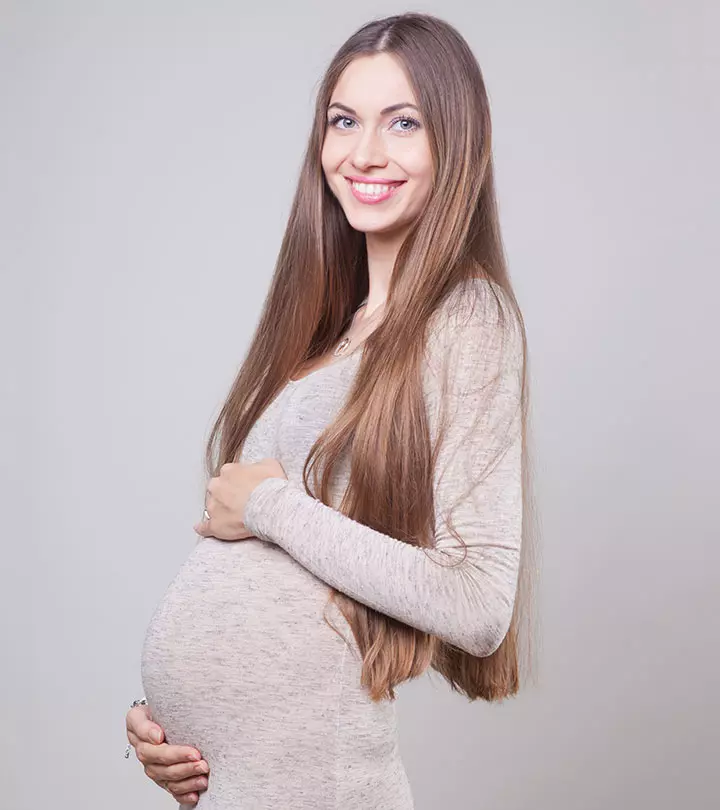
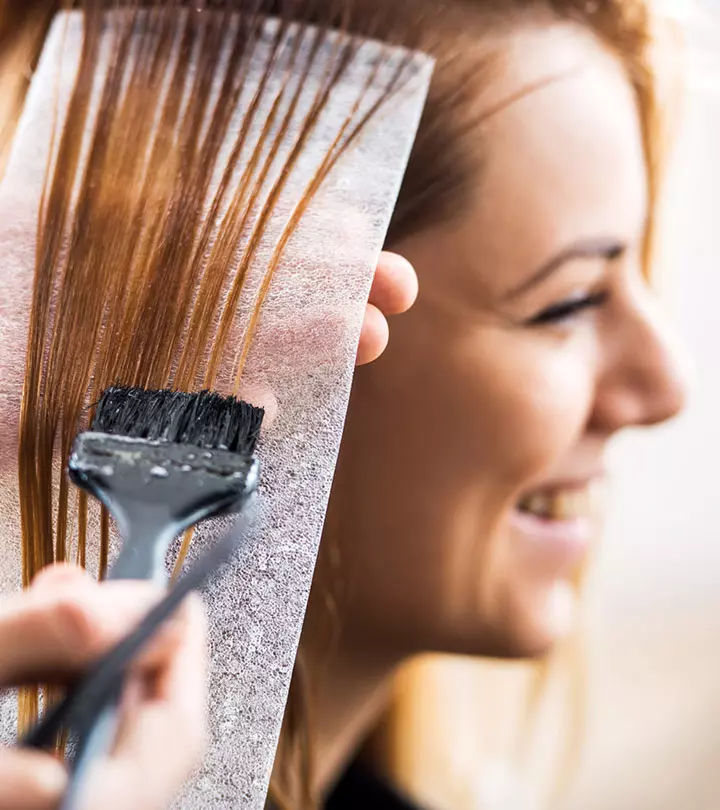
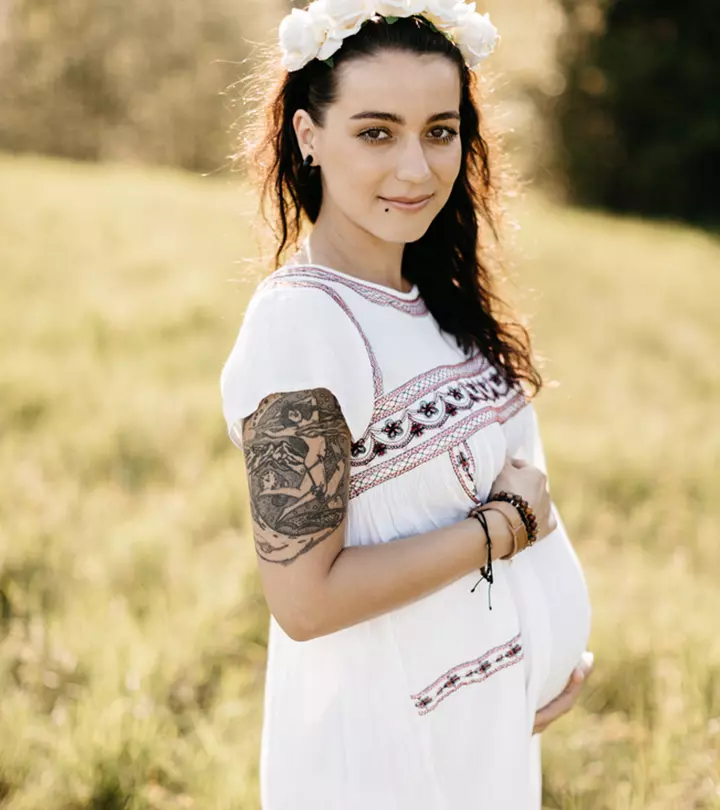
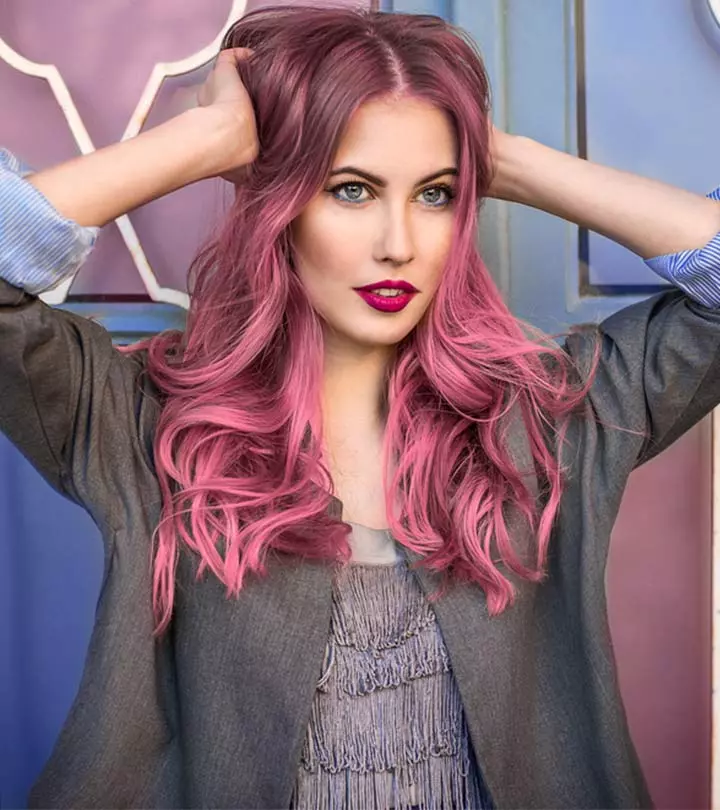
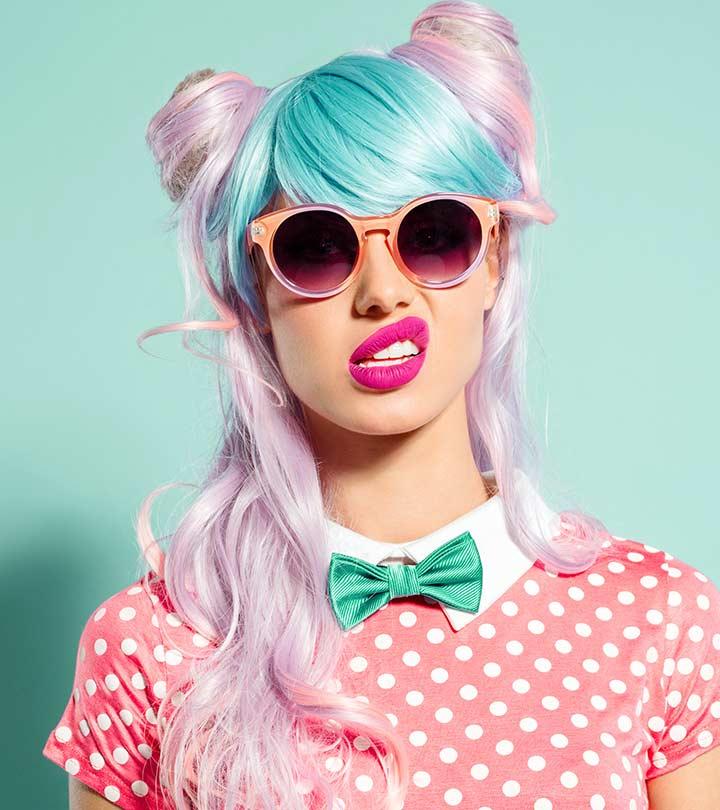
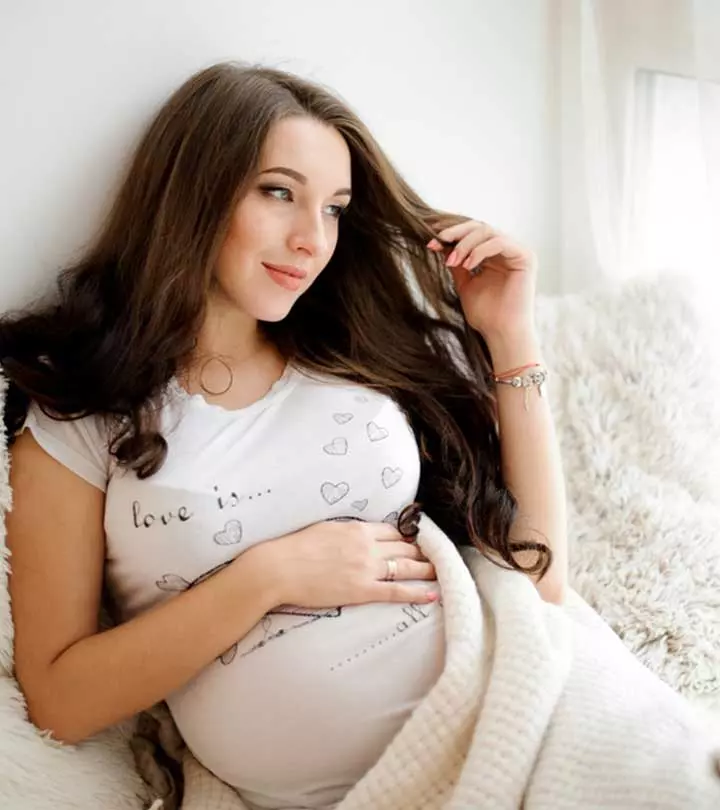
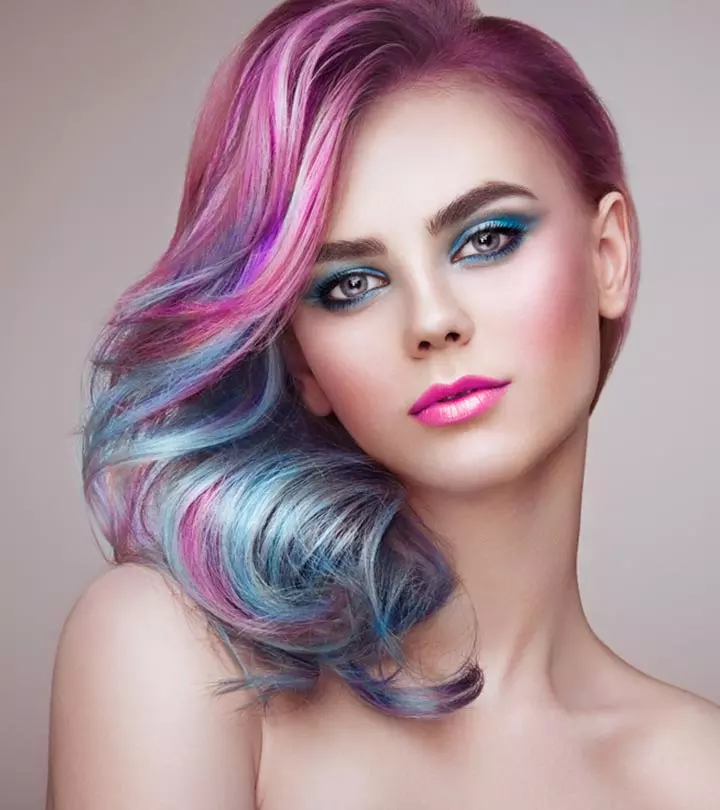
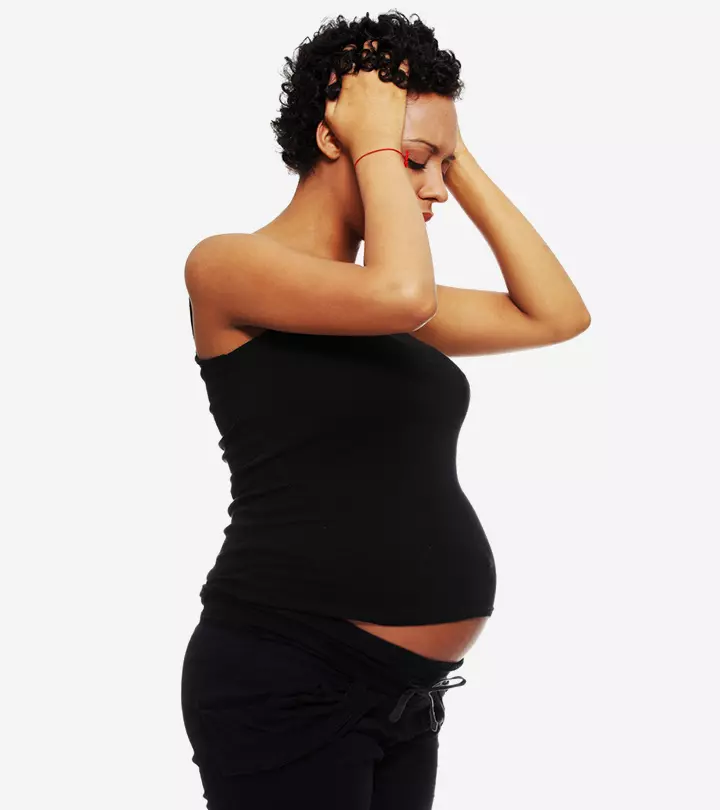
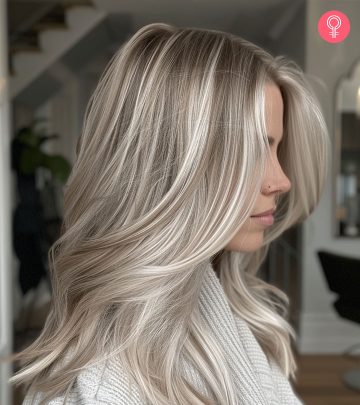
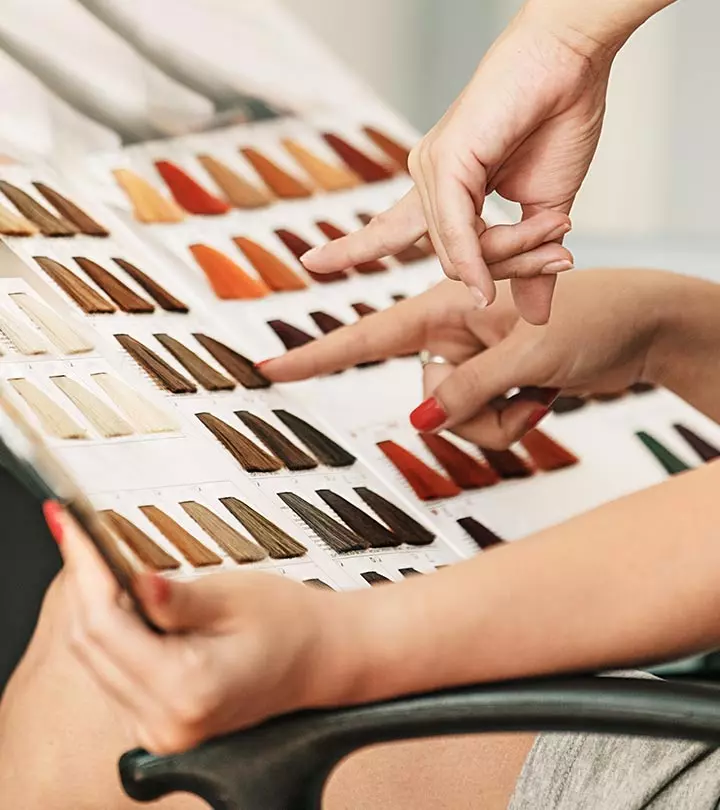


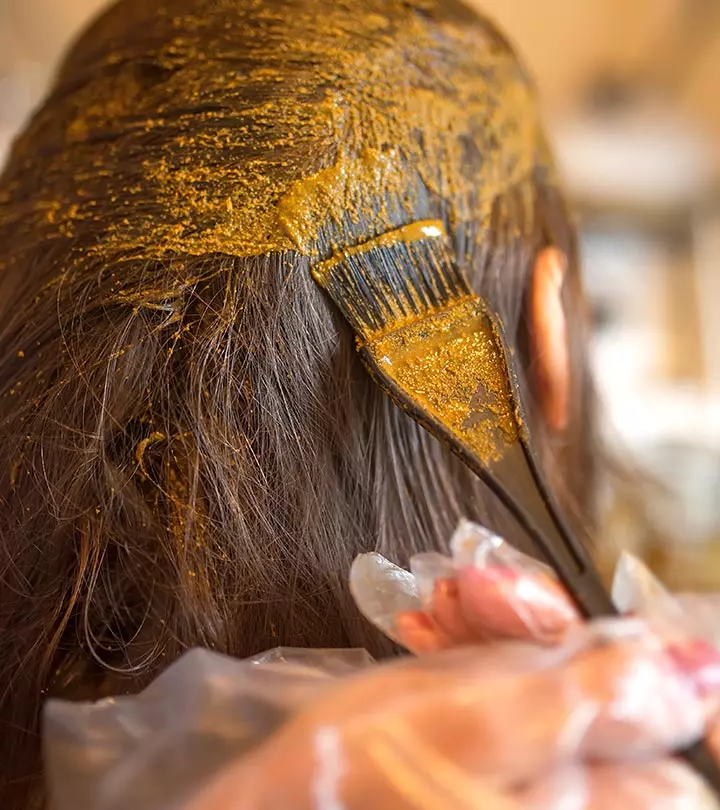

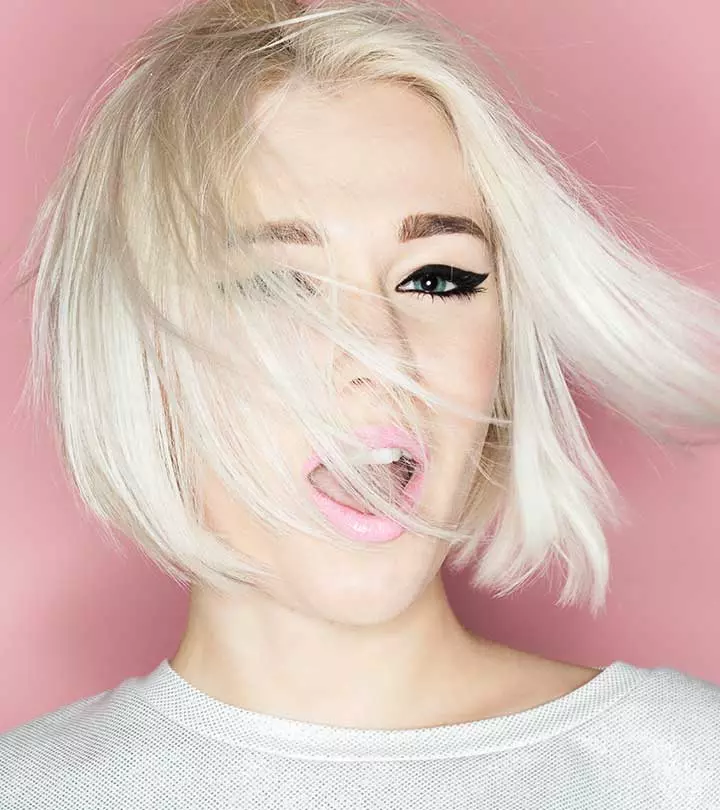
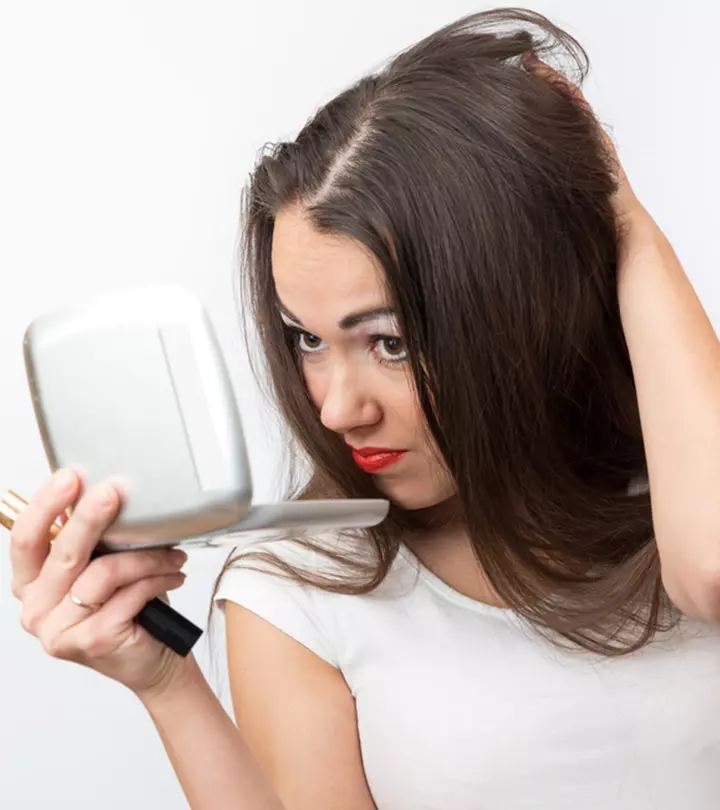
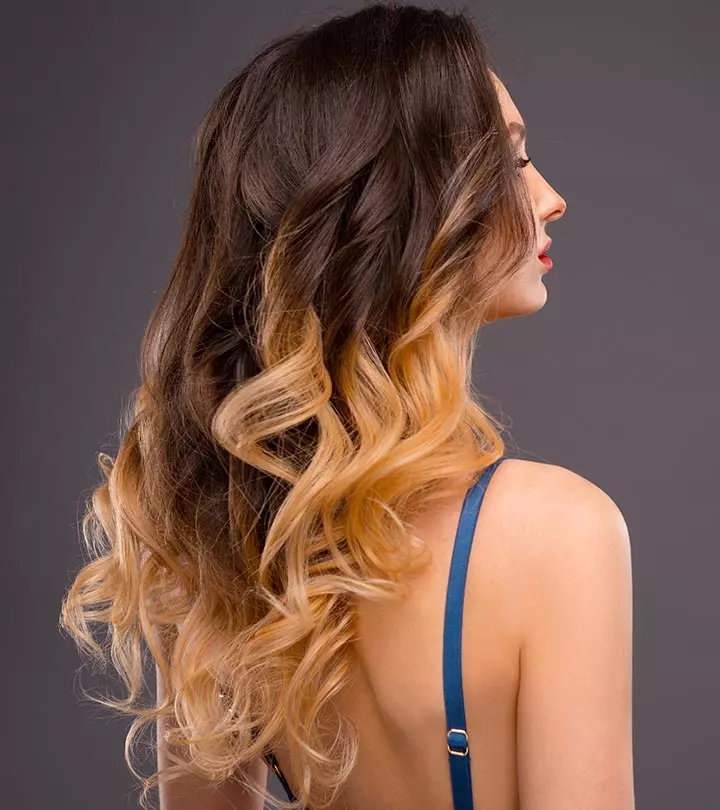
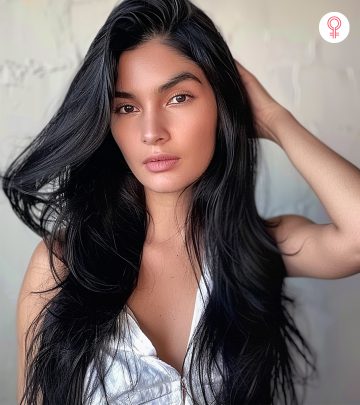
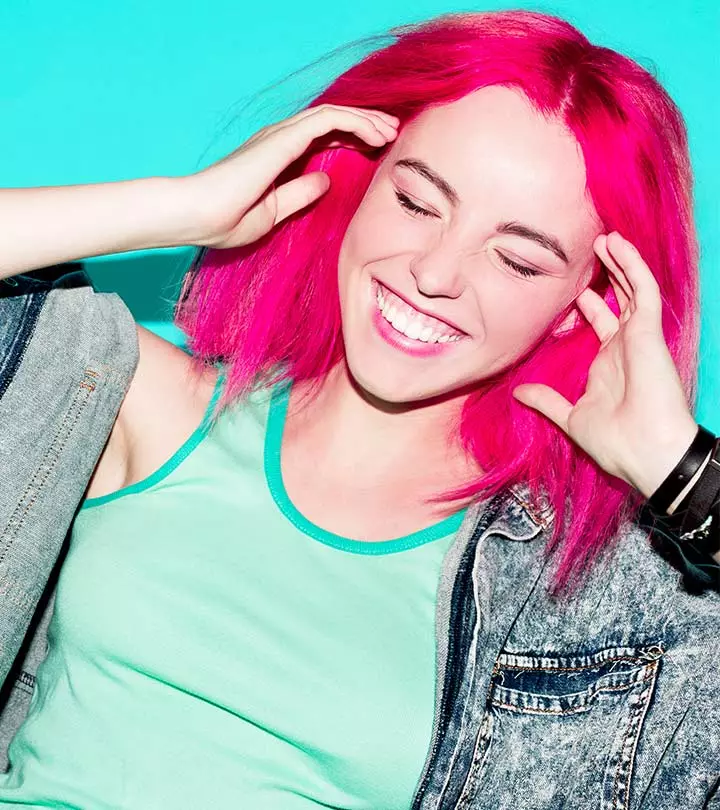
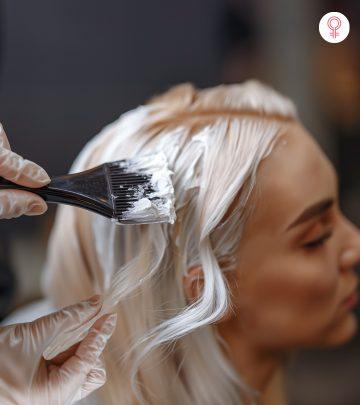
Community Experiences
Join the conversation and become a part of our empowering community! Share your stories, experiences, and insights to connect with other beauty, lifestyle, and health enthusiasts.